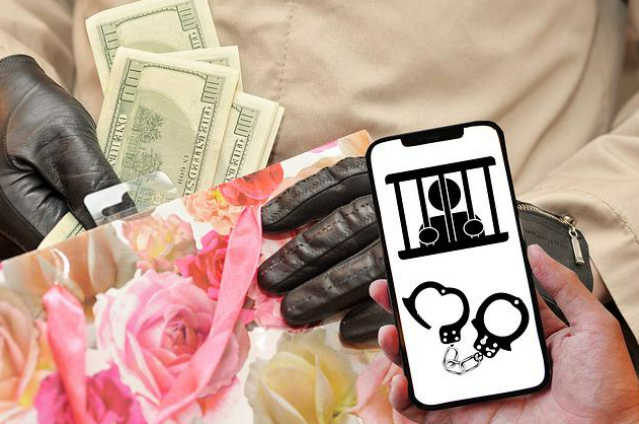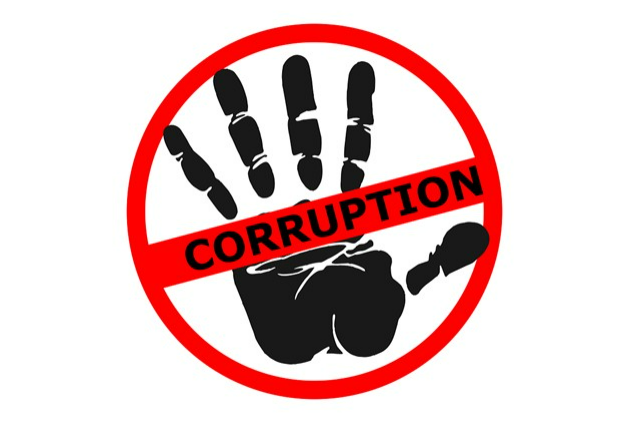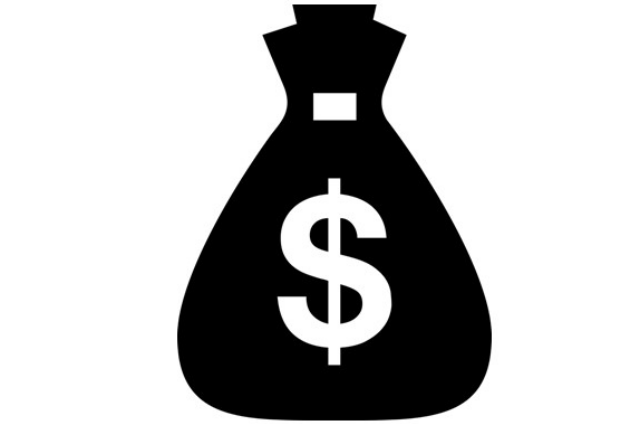
Introduction
Corruption is one of the social evils found in all societies of the world. In some societies, it is more rampant than others. Unfortunately, India is regarded as one of the countries in which corruption is rising in alarming proportions. It has been attributed to the degradation of Indian politics.
'Power corrupts and absolute power corrupts completely.' - Lord Acton.
Corruption has become the main-stay of our national polity in the recent past. Practice of corruption at lower levels by some clerks, attenders and peons for some petty amount is understandable and tolerable as they may practice it due to tough financial conditions and excessive demands and pressures. What is more disturbing and dangerous is corruption at higher levels. It is needles to say that the evil of corruption may lead to instability and decline of equilbrium in society. It invariably involves negation or betrayal of normative values of society, which are essential for the smooth functioning of society.
What is Corruption?

- It is an act of commission or omission by a public servant for securing pecuniary or other material advantage or indirectly for himself, his family or friends, is corruption.
- Corruption is an improper or selfish exercise of power and influence attached to a public office or to a special position in public life.
Corruption has become Pervasive:
Corruption has spread almost everywhere rather it has it's innumerable forms and dimensions. With the passage of time, corruption in India has become a 'convention', a 'tradition', a 'psychological need' and 'necessity'. It is a regular practice, in business transaction or deal. It manifests itself in a variety of shapes varying in heinousness. Corruption is there at the very root of our social life. Most of the people are guilty of corruption in one way or another.
Suresh Kohli points out in his 'Corruption in India' ( Page 32-33 ), 'There is not a single individual who has not been lured into corruption, if corruption is accepted in a wider perspective, exploitation of any kind is corruption, shirking work is corruption, waste of time, energy and money is corruption, deceiving or betraying is corruption, mismanaging of public or private funds is corruption, undue use of authority, force or power is corruption, smuggling is corruption..... sex has become one of the biggest areas of corruption......corruption is the driving force and part of national character.'
G.S. Bhargava observes, 'Again the milk vendor, who adulterates milk, the sanitary inspector who connives at it, the grocer who uses false weights, the contractor who does a shady job of road building, the engineer who put the seal of approval on it and the city father who has a cut in the contractor's ill-gotten wealth, all these are corrupt. But there is an even more banal form of corruption when men who wear the purple of commerce control party machines and political power and those with political power trade it for money. This type of dishonesty is more dangerous because it sets in motion the machinery of corruption, eating into the very vitals of the society.
Corruption has been with the Indians since the mythological times and is found in every walk of life.
'The Far Eastern Economic Review' has called corruption, the 'Asian lubricant'. It says like the gods and goddesses who abound in Asia ( including India ), each with many faces, many hands, and many names, corruption has diverse aspects and numerous ingenious ways of extorting an illegal 'luck'.......corruption in Indian public life is all pervasive.
Causes of Corruption:
Corruption is like blood cancer. It has taken deep-roots in the country. Corruption in Indian public life is 'all pervasive' and that businessmen, bureaucrats, contractors, industrialists, entrepreneurs, journalists, politicians etc. As the time moves more and more people are being swept by the move of corruption. It is a complex phenomenon and various factors and forces have conspired to cause it and spread it everywhere. The causes for corruption have been enlisted by C.B. Mamoria ( Pg. 844-47 ) that shall be elaborated here:-
- Economic Insecurity: The poor people become corrupt in the hope of becoming rich. The rich indulge in it for fear of losing of what they have. The cravings to 'have more' in almost all sections of society leads to the smuggling of corruption on a massive scale.
- High Rate of Income Tax: Since tax rates are comparatively high in India even the honest people are often tempted to escape from it by making false claims of their property and income. Many of the officials in the Income Tax Department are equally corrupt and they thrive on bribery. Such officials take bribery from not only the black marketeers and tax evaders but also from innocent people who have bribes in order to avoid suffering and humiliation at the hands of these officials.
- Meager Salary Being Paid to the Government Servants: Employees in some of the government departments are paid comparatively very less salary. This situation leads them to expect tips and bribes even for doing their regular or routine duties. Hence, becomes the cause of corruption in administration.
- Emergence of New Sources of Wealth and Power: The modern political economic set up provides a chance for the politicians in power to make money through illegal means. As Lincoln Steffens has said, 'the politicians took bribes because business men gave them what they had and businessmen gave them because they wanted to.' This unholy understanding between the businessmen and the politicians always encourages corruption.
- The System of Democracy: The present style of functioning of democracy in India, also contributes to corruption. All parties, especially the ruling party spends crores of rupees on each election. This money comes from big businessmen, industrialists and such other rich men who have their own vested interests in financing the elections. They supply money to the party elections in the form of black money. This in turn, gives them license, a 'moral' justification for accumulating 'number-two money' in different forms.
- The Very Presence of Black Money: Existence of large amounts or unaccounted black money, is one of the main sources of corruption. 'This money is obtained by various ways, namely, tax evasion, smuggling, speculation in immovable property and shares and stocks, receiving fees and remuneration partly or wholly in cash without showing them in the accounts, trading in licenses and permits......etc.'
- Social and Economic Modernization: It is said that modernisation breeds corruption in industrial society, which 'offers prizes for doing evil, money, position, power', besides bringing about attitudinal changes in the system. New loyalties and new identifications emerge among individuals and groups. This contributes to an increase in the incidence of corruption. As Huntington said, 'Corruption in a modernizing society is in part not so much the result of deviance of behaviour from the accepted norms as it is the deviance of norms from the established patterns of behaviour.' More than any other thing 'the get-rich quick' motivation inspires a large number of people both at the top and bottom of the society to become corrupt.
Organised Crime and White Collar Crime
Organised Crime:- Corruption and organised crime very often go together. Corruption provides scope for organised crime. Organised crimes is different from the usual types of crimes such as murder, arson, loot, stealing, gang fight etc.
Organised crimes are normally committed by comparatively rich and statused people in society. They are often good family men who attend religious programmes and activities regularly and love their children. Some of them are in business and they are successful businessmen. But their business is crime and their business methods often include torture and murder. They are the leaders of organised crime.
'Organised crime is distinguished from other types of crime by it's hierarchial structure, monopolistic control and influence, dependence on violence for enforcement, immediately from the law through the corruption of police and judicial processes, and incredible financial success.'
Traditionally, organised crime has been seen as a 'family' affair led by some unscruplous people with criminal tradition. Today, however, organised crime is increasingly viewed as an activity based on the same market processes such as legal business, providing goods and services that are illegal. Organised crime, thus, can be viewed as 'the extension of legitimate market activities into areas normally prescribed, for the pursuit of profit and in response to latent illicit demand.' Since there is an unlimited demand for illicit goods and services many more suppliers are attracted to the field. As a result the traditional organised criminals are now being challenged by organisations which are capable of successfully organising any kind of crime.
Political Corruption and Organised Crime:
Political corruption is the main motivating factor for organised crime in the modern societies. Elliot and Merril have rightly observed that, 'Political corruption and organised crime are so closely related that one cannot be considered without the other.' Another writer Sullivan has made more or less the same observation. He writes, 'Organised crime could not exist if it were not fostered by corrupt politicians and corrupt police.' There is an increase in the organised crime in India, that is, the development of large-scale organisations for criminal activities. The organised crime may take any of these forms: racketeering, gambling, smuggling and kidnapping. Organisers of these crimes indulge in anti-social activities - like carrying illegal prostitution in hotels, supplying liquors in prohibited areas, smuggling gold and other valuable goods, organising mafia gang to control various legitimate business activities such as coal mines and so on. The main purpose here is to get large profit in the form 'easy money'. The activities of the organised criminals have a great disorganising effect on the community.
White-Collar Crimes or Socio-Economic Crimes:

White collar crimes account for enough violations of law. By comparison, the instances of white-collar crimes are more than the conventional types of crimes such as theft, burglary, murder, loot or abduction. The loss incurred through white-collar crimes is far higher than that of the conventional type. In America, it has been estimated that losses from such crimes may be as high as 200 billion dollars every year. In India, white-collar crimes are on the increase.
Definition of White-Collar Crimes:
( 1 ) According to Sutherland, 'White-collar crime is a crime committed by a person of respectability and high social status in course of his occupation.'
Examples of White-Collar Crimes as cited by Sutherland:- Illegal exploitation of employees, mislabelling of goods, violation of weights and measures statutes, selling adulterated goods, evading corporate taxes, manipulation in stock exchanges, commercial bribery, bribery of public officials directly or indirectly to secure favourable contracts and legilations, misgrading of commodities, tax frauds, illegal sale of alcohol and narcotics, performing illegal abortions, illegal services to criminals, infringement of patents, trade marks and copy rights and unfair labour practices.
( 2 ) According to Sayre, white-collar crimes can be called 'public welfare offences'. He has classified such offences into eight categories which are as follows:-
- illegal sale of intoxicating liquor
- sale of impure or adulterated food or drugs
- sale of misbranded articles
- violation of anti-narcotic acts
- criminal nuisances
- violation of traffic regulations
- violation of motor vehicles laws
- violation of general regulations passed for safety, health and well-being of the community
( 3 ) At present, the term white-collar crime is used to mean 'socio-economic crimes'. According to The Santharam Committee, such crimes include the following:-
- tax evasion and avoidance
- share pushing malpractices in share market and administration of companies
- monopolistic controls and usury
- under-invoicing or over-invoicing
- hoarding, profiteering and smuggling
- violation of foreign exchange regulations
- election offences and malpractices
- theft and misappropriation of public property and funds
- misuse of their positions by public servants in making contracts and disposal of public property
- offences relating to guest control orders and rationing
- violation of standards, weights and measure
- frauds in corporate bodies
- professional misconduct
Nature of Socio-Economic Crimes:
White-collar or socio-economic crimes are radically different from ordinary or conventional types of crimes in several respects:-
- These crimes are committed by statused people in society such as - doctors, advocates, chartered accountants, government officials, repairers of mechanical goods and not the traditional criminals such as robbers, thieves, murderers and rapists etc.
- These crimes are normally committed by means of fraud, deceit, misappropriation, misinterpretation, adulteration, malpractices, irregularities and so on.
- These crimes are committed by means of a deliberate and planned conspiracies without any feelings and sentiments.
- When socio-economic crimes are committed, people tend to tolerate them because they themselves indulge in them and they themselves often identify with those who do them.
- Originally, white-collar crime meant to describe middle and upper class business persons who committed crime in the normal course of their work. But now it refers to a wide variety of occupationally oriented violations committed by persons in any class.
- The victim of socio-economic crimes is normally the entire community, society or even the entire nation besides the individuals.
- These crimes do not involve or carry with them any stigma while the traditional crimes carry a stigma involving disgrace and immorality.
- These crimes constitute a separate category because the control of such crimes 'involves the protection and preservation of the general health and economic system of the entire society against exploitation and waste....'.
Prevention of Corruption

Corruption which has gone deep into our social life cannot be removed very easily. In fact, it can only be reduced or minimised, and can be hardly be stopped altogether. No nation has become successful so far in this regard. Even for minimising this problem, both preventive and punitive measures will have to be taken.
The Santharam Committee on the Prevention of Corruption, instituted by the Central Government in 1964, observes, 'Corruption cannot be eliminated or even satisfactorily reduced unless preventive measures are planned and implemented in a sustained and effective manner. Preventive action must include administrative, legal, social, economic and educative measures.'
The Committee recommended the following measures:
1) A thorough study of the extent possible, scopes and modes of corruption, should be under-taken regarding each department, undertaking or ministry. The study must also suggest preventive remedial measures for the same.
2) Administrative delays should be reduced to the minimum to avoid corrupt practices. For this purpose:
- existing procedures and practices should be reviewed to avoid delays.
- time-limits should be prescribed for dealing with receipts and should be strictly enforced.
- all notings at a lower level than that of under secretary should be avoided.
3) Attempts should be made to educate citizens in regard to their rights, responsibilities and the procedures of the government.
4) Improvement must be made to increase the salary of the employers besides making necessary provisions for housing, medical facilities for the government employees etc.
5) Informal codes of conduct for different categories of employees particularly belonging to the departments dealing with economic affairs must be evolved insisting on them not to avail themselves of entertainment and other facilities provided to them by those with whom they have official dealings.
6) Officials should not have any dealings with a person claiming to act on behalf of an industrial house unless he is properly authorised to do so.
7) Companies and businessmen should be obliged to keep detailed accounts of expenditure.
8) Officers for the administrative posts should be selected with great care. Only those whose integrity is tested to the fullest satisfaction must be appointed for the key posts.
9) There should be a complete ban against government servants accepting private commercial or industrial employment for two years after retirement.
10) The taxation laws must be modified, licenses and permit system must be thoroughly reviewed.
11) The law enforcing authorities must see that the laws are rigorously enforced without any fear of favour.
12) Mass communication media must play a more positive role in encouraging honesty and discouraging dishonesty and corruption.
13) Bureaucratic corruption must be reduced by stringent enforcement of punitive measures against bribe-taking.
14) Corruption trials should be given the widest possible publicity.
15) The salaries of government officials and the ministers and legislators must be raised in tune with the price index.
- Prevention of Corruption Act, 1947: Certain sections of the IPC could be used for punishing those who are guilty of taking bribe. The Central Government introduced in 1947 'The Prevention of Corruption Act' for the more effective prevention of bribery and corruption.
Black Money
'Black money' which is often referred to as 'parallel economy' or 'unrecognised economy' or 'unofficial economy' is both an economic and social problem. It has both social and economic consequences upon society. Black money is a problem with a difference. If the problem of poverty affects whose who are poor, and if the problem of unemployment affects directly those who are unemployed, the problem of black money does not much affect those who have ample of black money, but it affects the common man and the society at large. Hence, all the nations are concerned about checking or controlling the growth of black money.

Meaning of Black Money:
Black money is that, which is earned or received in contravention of the prevailing Government acts and regulations, or money that has been retained without the payment of taxes which are due to the Government.
Black money accrues everyday and everywhere and ranges from a few rupees to a few lakhs of rupees. Example:-
- It is black money when a minister or a parliament member or an official takes payment for giving a license or a permit.
- It is black money when a cement or steel manufacturer or trader, sells the commodity at a price above the controlled rate without the money appearing in the official records.
- When a professor goes to another university to conduct an examination and travels in II class train while claiming I class fare, he also acquires money which is not white, but black.
- These examples could be multiplied.
The Origin of the Term 'Black Money':
'It was during the Second World War that the terms 'black market' and 'black money' came into vogue. Due to imposition of various controls on distribution and prices a clandestine market had sprung up in which things were still available, but at prices higher than the controlled ones. The term 'black money' became current to describe the money received or paid in such 'black market' deals ..........with the passage of time, 'black money' acquired a wider connotation --- wider than it's association with black market transactions alone.
'Today the term 'black money' is generally used to denote unaccounted money or concealed income and undisclosed with, as well as money involved in transactions wholly or partly suppressed.'
In simple words, it can be said that black money is tax-evaded money. This kind of money can be earned through either legal or illegal means.
i) Teachers earning money through private tuition and book royalty not included it in their income tax returns.
ii) Music artists earning huge amount of money by giving programmes on contract basis and including only a part of it in their income tax returns and retaining with themselves a major portion of their earnings and so on.
b) Illegitimate sources are many. Examples:- Bribes, black marketing, smuggling, selling commodities at prices higher than the controlled prices and so on.
Causes of Black Money:
According to Prof. Ram Ahuja, several factors cause black money and he lists the following factors as important ones:-
- High Rate of Tax: An unrealistic and disproportionate increase in taxes and duties compel some people to evade tax and accumulate black money. As per the present rule ( 1998-99) the tax-free income limit is fixed at Rs. 25, 000. It is a known fact to everybody that no one can run his family smoothly in this age of inflation within this limit of Rs. 25000. There is an argument that if income tax is reduced there is less likelihood of hiding the income and paying more tax.
- Different Rates of Excise Duty: The Government has fixed different rates of excise duty. On the basis of the quality, the products are classified into different grades, and tax duties are levied on the basis of the classification made by the manufacturer. Manufacturers, sometimes downgrade a product to pay lower rates of excise, which will help generate black money.
- Price-Control Policy of Government: The Government often regulates the prices of some commodities by following what is known as 'price-control policy'. Since this policy is comparatively rigid it does not take into account the ups and downs in the market due to the interplay of demand and supply. The private manufacturer and merchants take undue advantage of this policy and resort to hoarding fraud, artificial scarcity, etc, which result in black money.
- Inflation: Inflationary situation is said to be one of the causes of black money. In this situation, the prices of certain commodities go up and moneyed people start spending their unaccounted money. They may also divert resources from production to speculation. This will cause inflation.
- Quota System and Security: The Government has fixed quota for import, export and foreign exchange. This quota system is misused to make black money. When there arises a scarcity of essential goods people are compelled to pay more for them than the controlled prices. This gives scope for black money. For example, people are paying now more money than what is fixed as it's price for kerosene oil due to it's scarcity. The extra payment made by the customer will add to the black money.
- Elections in a Democratic System: Elections are a part of the democratic process. Electioneering has become costly affair today. Hence the candidates contesting for elections are bound to spend more than what is legally permissible for them. These elections are generally financed by the black money holders. There is an unholy alliance between the political parties and the business tycoons. These business oriented black money holders except political patronage and economic concessions. They obtain such concessions from the political leaders by paying them heavy donations through black money. The concessions will help them to generate more and more black money.
- Real Estate Transactions: People amass black money through real estate transactions. Purchasing a house and land at a cheaper rate and selling it at a higher rate by manipulating to pay very less stamp duty has become a profitable business in all major towns and cities. This is also an important source of black money.
The Effects of Black Money:
Generalisation of black money in society will have adverse economic as well as social consequences. Black money damages the economic development of the nation by hampering developmental programmes and plans. Due to tax evasion the exchequer loses huge amount of money which could have been used for developmental activities. It adds to inflation and the government loses its control over the economy. It contributes to economic instability.
The social consequences of black money are also severe. It increases social inequality, creates frustrations among honest people, increases crimes like smuggling, bribery etc. The government may not get enough revenue to undertake social service programmes for the uplift of the poor and downtrodden. It leads to shifts in income and wealth. It is assumed that black money is mostly transferred from low income groups to the relatively higher income groups. It appears that there would be a net loss of money to the poorer sections through black money. Needless to say it contributes to unemployment and poverty.
Measures to Control Black Money:
The problem of 'black money' has to be tackled in a realistic and at the same time in an intelligent manner. Since it is not a problem with the poor but with the well off people, it should be handled carefully. The following measures will be of some help in controlling, if not eliminating this problem.
- More than any other thing, the standards of public morality must be raised. In this regard, politicians, ministers, senior civil servants, intellectuals and the media people must play an important role. They must set up an example for others to emulate by paying taxes properly.
- Public expenditure must come down and there must be stringent monitoring of expenditure, especially of public sector projects.
- There must be much more effective supervision of private sector investment expenditures, particularly where there is greater reliance on development finance institution and banks.
- Tax system must be realistic. Unduly high rates of tax are counter-productive. It would lead to tax evasion - whether it is income tax, wealth tax, capital grains tax or transfer tax on real estate - and at a larger stage creating black money.
- Price controls should be done away with. Exchange rates should be realistic reflecting our comparative prices and competitive position in world economy.
- Tax collection machinery must be made more efficient then what it is now. Honest officials in this department should be profusely rewarded.
- Attractive incentives must be given for voluntary disclosures of income.
- A thorough overhauling of the economic intelligence unit must be made. Trusted officials must be recruited for this department.
- Administrative corruption at different levels should be stopped.
- Exempting tax on money spent on house construction may help mostly middle class salaried people who are normally made to pay taxes without fail.
Conclusion
Corruption and Black Money continue to be the biggest obstacle of the economic development everywhere. India should take revolutionary measures to launch a battle against these two social evils.
'Money and corruption are ruining the land, crooked politicians betray the working man, pocketing the profits and treating us like sheep, and we are tired of hearing promises that we know they'll never keep.' - Ray Davies.
. . .
References:
- Bhargava G.S. in 'India's Watergate: A Study in Political Corruption.' - Page 10.
- www.pib.gov.in
- C.B. Mamoria in 'Social Problems and Social Disorganisation' - Pg. 839
- Scarpitti and Anderson in their 'Social Problems'
- researchgate.net
- Dwight Smith - Page 48
- Ram Ahuja in 'Social Problem in India' - Pg. 384-87
- www.taxmanagementindia.com
- www.wikipedia.org
